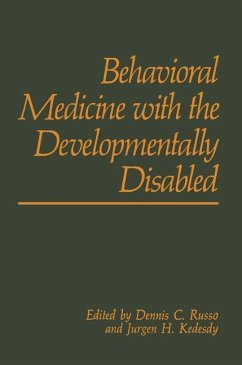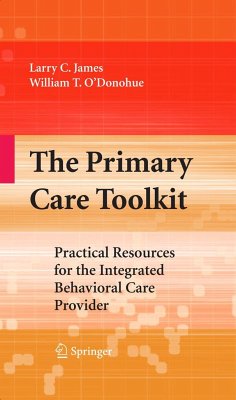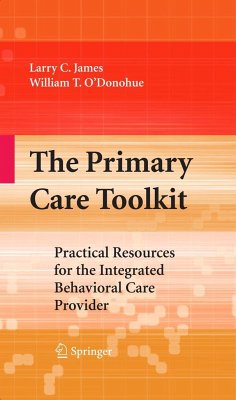
Behavioral Medicine with the Developmentally Disabled

PAYBACK Punkte
19 °P sammeln!
Since the late 1960s, the behavioral treatment of mentally retarded, au tistic, and other developmentally disabled persons has grown progres sively more sophisticated. The literature on behavioral treatment has produced effective and clinically significant programs for the reduction of maladaptive behaviors such as tantrums, aggression, and self-injury; skills deficits have been remediated through improved programs for language and life skills acquisition; and new environments have been opened in the creation of mainstream educational opportunities. In spite of these advances, it strikes us th...
Since the late 1960s, the behavioral treatment of mentally retarded, au tistic, and other developmentally disabled persons has grown progres sively more sophisticated. The literature on behavioral treatment has produced effective and clinically significant programs for the reduction of maladaptive behaviors such as tantrums, aggression, and self-injury; skills deficits have been remediated through improved programs for language and life skills acquisition; and new environments have been opened in the creation of mainstream educational opportunities. In spite of these advances, it strikes us that this almost exclusive focus on behavior problems and skills remediation has been somewhat myopic and that much of the potential for application of behavioral science to solving problems of the developmentally disabled is as yet untapped. In the 1980s, an important revolution has taken place: the devel opment of the field of behavioral medicine. This field, in merging disease treatment andmanagement with learning and behavior, has already made impressive progress toward a reconceptualization of health care that acknowledges the centrality of behavior in disease expression. Al though there has, as yet, been only a preliminary application of this reconceptualization to the field of developmental disabilities, we are convinced that further extension has great potential.














